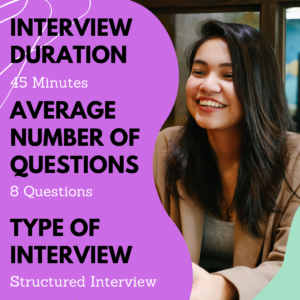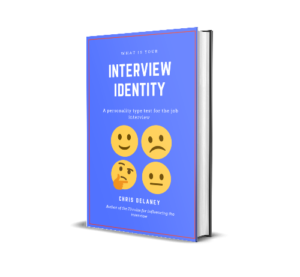Amazon, this month, has announced a recruitment drive to hire 100 degree-level apprentices.
In addition, Amazon also has 400 advanced apprenticeships on offer and 500 internal apprenticeships opportunities for current Amazon employees to apply for.
The Amazon apprenticeships, according to Yahoo News, will span across 25 different job roles including engineering, broadcast production, creative design, IT, health, safety, and the environment.
Degree-level apprenticeships are in high demand, so expect tough competition, especially with Amazon offering up to £30,000 salaries.
Before applying for an Amazon apprenticeship it is important to first understand the varying apprenticeship levels:
Intermediate level apprenticeship
- Equivalent to 5 GCSEs grade 4-9 (previously known as grade A*-C)
- Entry requirements – literacy and numeracy Level 2 certificates or Maths and English GCSEs
Advanced level apprenticeship
- Equivalent to A-levels and BTec extended diploma
- Entry requirements – 5 GCSEs grade 4-9 including Maths and English
Higher-level apprenticeship
- Equivalent to a foundation degree
- Entry requirements – A-Levels, Advanced level apprenticeships NVQ Level 3 or a BTec extended diploma
Higher and Degree-level apprenticeship
- Equivalent to a degree. The difference between a higher and degree apprenticeship is that a full bachelor’s or master’s degree can be achieved as part of a degree apprenticeship.
- Entry requirements – HNC, HND, NVQ Level 4 NVQ or any other level 4 qualifications
To be successful in the recruitment job hunters will need to pass an apprenticeship interview process.
Don’t fall into the trap of believing the apprenticeships are only for school leavers. The myth comes from a previous government initiative to increase Level 2 and 3 apprenticeship take up with school and college leavers.
For degree-level apprenticeships, any career professional (school leavers won’t yet have the entry requirements to apply for a degree-level apprenticeship) can apply for the various apprenticeship opportunities, and they will due to Amazon’s competitive salaries.
Amazon Recruitment Process.
With vacancies going live on March 4th, it’s important for job seekers to get familiar with the Amazon recruitment process.
The 3 stages for applying for an Amazon degree-level apprentice include:
- Online application – this includes uploading a CV and passing an eligibility test
- Complete a literacy and numeracy test, before taking part in a virtual interview
- Attend an assessment center to complete a competency-based job interview and group exercises.
Amazon Degree-level apprentice interview questions
The trick to passing a job interview is predicting the job interview questions, as this allows the interviewee to prepare high-scoring answers.
As an example, a candidate applying for an Amazon warehouse apprenticeship is going to be asked questions on health and safety, completing orders and receiving goods, whereas an Amazon applications developer will be asked questions on programming language and creative problem-solving.
This article will teach you how to answer job interview questions relating to degree-level apprenticeships.
What is your career goal?
Degree-level apprenticeship interviews vary from standard job interviews because the employer will invest a lot of time into the development of a successful employee.
Not only do employers fund the degree-level apprenticeship (there is no cost to the apprentice) the employer will also allocate other staff members as mentors, fund additional development and training opportunities, as well as allowing time off work duties to complete assignments.
With this in mind, the employer is looking to recruit an enthusiastic career professional who has a clear career objective.
Why? Because an employer who has spent a large amount of time developing a staff member doesn’t want them, once qualified, to leave for another opportunity.
When answering the career goal question, which can be phrased as ‘why have you applied for an apprenticeship position?’ or ‘what interested you about this role?’ the interviewee must reassure the employer that the job role they are applying for has a direct route to their longer-term career goal.
To score high, when answering this interview question, applicants should:
- Be enthusiastic
- Show confidence
- Give detail
Example Answer
Start by focusing on your passion, which should relate to the job role/career goal being discussed:
‘I am passionate about (add sector related passion – computer design, advanced technology, artificial intelligence, etc)..’
After highlighting a passion, link the subject to your career goal:
‘…since (a young age, leaving school, learning about X) I have wanted to pursue a career in (add job role) …’
Next, add a unique selling point:
‘…my whole life is about (add sector/job role) I attend (fairs, training, clubs – anything that links to the job role). My previous roles were in (add relevant job roles) where I became an expert at (add a skill, quality and unique selling point)…’
End with a summary:
‘…to conclude, I am passionate about (career) and I have applied for the degree-level apprenticeship to increase my sector knowledge while utilising my (unique selling point) while working as a (add apprenticeship job role).
Why did you apply for the Amazon apprenticeship scheme?
The ‘why us?’ interview question asks a hidden question – will you be working for Amazon long-term?
As discussed, there is a great deal of time and money put into the development of a degree-level apprentice. The employer, through the apprenticeship scheme, is upskilling the employee to be a highly competent industry professional.
In addition, the training is focused on the Amazon company culture, shaping the apprentice approach to the values of Amazon.
Anyone candidate that is viewed as a potential job hopper is unlikely to be successful.
Impress the employer by:
- Reassuring the interviewer that you have a long-term goal to work your way up the Amazon career ladder
- Matching your personal values to the culture of Amazon
- Praising Amazons successes
Research is key here. On Amazon’s about me,’ page is a breakdown of their history and Amazon’s vision and values.
Example answer.
State options:
‘When looking at degree-level apprenticeship options, I found several relevant to my career goal. One was with (add competitor) …’
Prase Amazon – use the below as a template but read Amazon culture and talk about the key areas that relate to your personal values:
‘…but I applied for the Amazon apprenticeship because of Amazon’s mission of being ‘customer-centric, what appeals to me is the innovative technology that Amazon brings to market, you can see how the leadership principles are embedded into every decision….(reference other Amazon values that you believe and any other reason why Amazon, as an employer, stood out for you)…’
Discuss what you can offer:
‘…what I can bring to the team is (add skill/quality IE creative thinking) an example of this is (give example of using said skill/quality)..’
How will you balance the apprenticeship assignments and the business as usual in work activities?
The ‘workload’ question isn’t really necessary.
Asking irrelevant questions to wannabe apprentices is important as the employer needs to check the applicant’s time-management skills and if they have an awareness of the workload involved in the undertaking of a degree-level apprenticeship.
The reason that there is no need to ask how a candidate will balance work against study, is due to the fact that Amazon will have an embedded training timetable.
On average, but depending on the apprenticeship role, the apprentices will attend a monthly, often online, lesson. Between each lesson, the apprentice will have to complete the accompanying assignment and collect relevant work-based evidence.
In most cases, employers will allow the apprentices time in work to complete the assignments, while still completing the day-to-day operational tasks.
Therefore, to answer the ‘time-management’ questions ensure you cover:
- Recognising the workload involved in undertaking a degree-level apprenticeship
- Working while studying
- Time management techniques

Example interview answer.
Show excitement
‘I’m really enthusiastic about returning to study….
Give detail
‘…I am really keen on developing my skills in (add a specific area relevant to the apprenticeship role)…’
Show understanding
‘… a friend of mine recently finished their degree-level apprenticeship and told me about the workload….’
Explain time-management approach
‘….as a very organised person I use (explain time-management model IE time management matrix)
Summarise
‘….in summary, I understand the additional workload and timeframe and the competing requirements of the day-to-day in-work tasks. As someone who always achieves deadlines and who is keen to pass the qualification, I will be able to plan workload and assignments to ensure that all tasks are complete to a high standard while being on time.’
The remaining questions will be job role related. For ideas what the type of job interview questions you will be asked use the Employment King search bar.
In addition to the above interview questions, interviewees will also be able to ask the interview panel a set of questions.



























